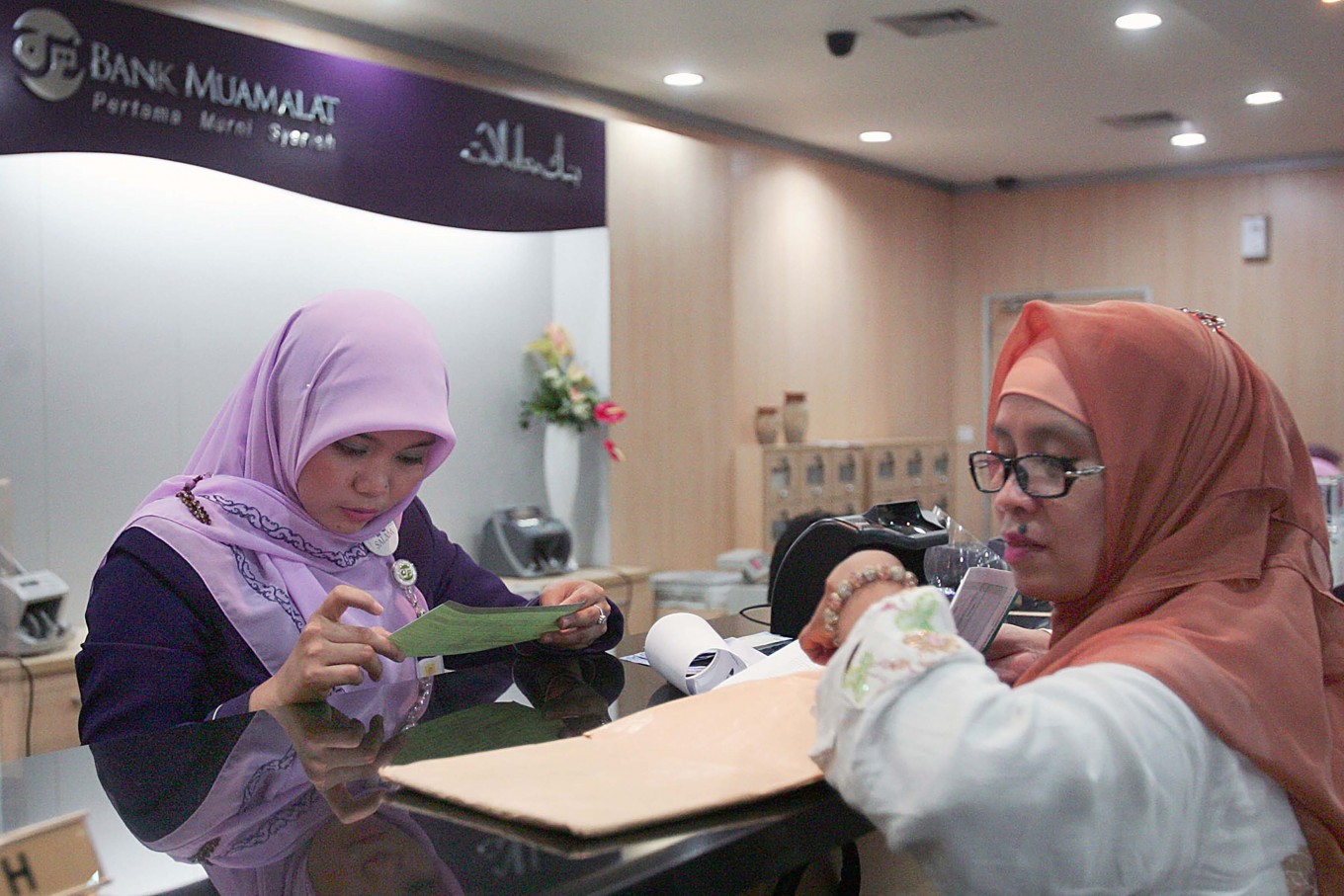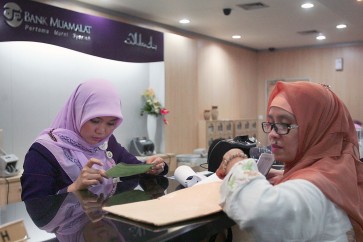Popular Reads
Top Results
Can't find what you're looking for?
View all search resultsPopular Reads
Top Results
Can't find what you're looking for?
View all search resultsChallenges of sharia banking in Indonesia
Indonesia’s sharia banking sector, which is the largest asset contributor to the country’s Islamic finance sector, is still facing a structural challenge.
Change text size
Gift Premium Articles
to Anyone
T
he recently released 2019 Islamic Finance Development Index (IFDI) by the Islamic Corporation for the Development of the Private Sector (ICD) reveals exciting news for Indonesia. The country jumped to fourth rank, below Malaysia, Bahrain and the United Arab Emirates, from 10th in the previous year.
The irony behind this achievement is that Indonesia’s sharia banking sector, which is the largest asset contributor to the country’s Islamic finance sector, is still facing a structural challenge. The failure of Bank Muamalat, the first sharia bank in Indonesia, to meet its minimum capital requirement of 12 percent reveals several structural issues eroding sharia banks in Indonesia.
Among these issues, the lack of risk culture is probably the most detrimental. It hampers the growth or — if we want to speak in a sustainable manner — the development of sharia banking in Indonesia. Similar to other financial institutions, the banking industry is a risk-based business. Therefore, channeling a bank’s loan — or financing in sharia banking term — has to be accompanied by scrupulous risk assessment.
The larger the size of the financing — i.e. financing corporate instead of retail borrowers — the more meticulous and in-depth the risk assessment should be. Ideally, a corporate banking department in a bank should have specialized sector analysts, usually referred to as Subject Matter Experts (SMEs), that really understand the business model and industry dynamics of their respective sectors. In addition, a properly formulated methodology to define the internal ratings-based (IRB) approach as required by Basel II guidelines is also crucial to monitor credit risk.
Bank Muamalat’s attempt to grow its assets by shifting to corporate financing (particularly in volatile sectors such as coal and crude palm oil) without improved risk assessment has led to higher credit risk. The commodity sector is usually riskier than other corporate sectors, such as the industrial or telecommunication sectors. Accompanying business metrics, in addition to standard financial metrics, are necessary during credit analysis to avoid unwanted credit risk buildup.
When credit risk is high, a bank’s nonperforming loan (NPL) — or nonperforming financing (NPF) for sharia banks — tends to increase. Higher NPF forces a bank to create a costly financing-loss provision on its balance sheet that eventually erodes its profitability.
In the case of Bank Muamalat, this high NPF, which exceeded the psychological threshold of 5 percent as of end-June 2019, resulted in provisioning expenses that undermined its profitability. Data from the Financial Services Authority (OJK) reveals that Bank Muamalat’s net profit in January-August 2019 had fallen by 94 percent from the same period last year to Rp 6.57 billion (US$453,103).


















